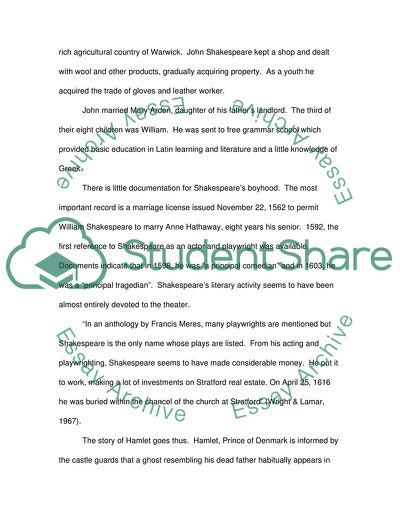Cite this document
(Getting at the Truth in Three Shakespearean Plays Essay, n.d.)
Getting at the Truth in Three Shakespearean Plays Essay. https://studentshare.org/literature/1717964-how-do-proplems-of-identifying-truth-find-expression-in-three-plays-of-shakespeare-1-hamlet-2-othello-3-king-lear
Getting at the Truth in Three Shakespearean Plays Essay. https://studentshare.org/literature/1717964-how-do-proplems-of-identifying-truth-find-expression-in-three-plays-of-shakespeare-1-hamlet-2-othello-3-king-lear
(Getting at the Truth in Three Shakespearean Plays Essay)
Getting at the Truth in Three Shakespearean Plays Essay. https://studentshare.org/literature/1717964-how-do-proplems-of-identifying-truth-find-expression-in-three-plays-of-shakespeare-1-hamlet-2-othello-3-king-lear.
Getting at the Truth in Three Shakespearean Plays Essay. https://studentshare.org/literature/1717964-how-do-proplems-of-identifying-truth-find-expression-in-three-plays-of-shakespeare-1-hamlet-2-othello-3-king-lear.
“Getting at the Truth in Three Shakespearean Plays Essay”. https://studentshare.org/literature/1717964-how-do-proplems-of-identifying-truth-find-expression-in-three-plays-of-shakespeare-1-hamlet-2-othello-3-king-lear.


